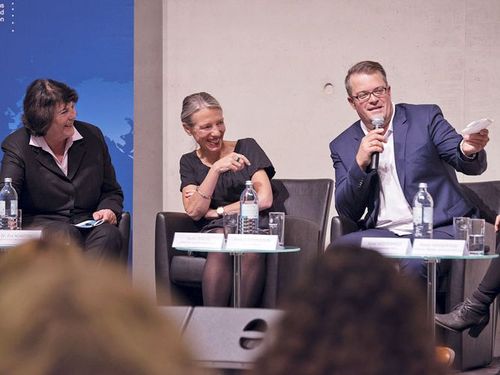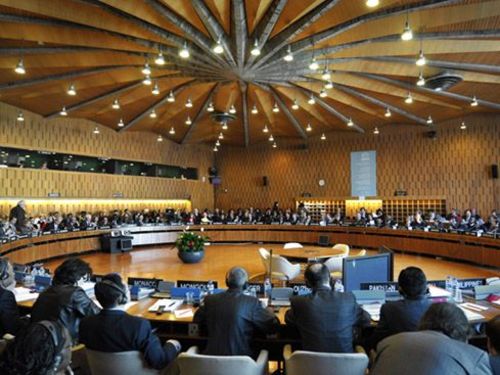UNESCO
UNESCO stands for the United Nations Educational, Scientific and Cultural Organization. It is one of the 15 legally independent United Nations specialised agencies and is based in Paris. 193 Member States are represented in UNESCO.
UNESCO was one of the first international organisations Austria joined, having become a member in 1948 (on 13 August as the 40th member), well before it joined the United Nations in 1955. This era marked a new beginning in terms of politics, economics and culture and searching for a new, positive identity. For Austria, this meant taking up an active role in international organisations and global politics, and joining UNESCO constituted the first step in this endeavour.
UNESCO’s goal is to contribute to ensuring peace and security through promoting international collaboration in education, science, culture and communication/information. This is because “a peace based exclusively upon the political and economic arrangements of governments would not be a peace which could secure the unanimous, lasting and sincere support of the peoples of the world, and that the peace must therefore be founded, if it is not to fail, upon the intellectual and moral solidarity of mankind.” (UNESCO constitution).
Austria and UNESCO
The Federal Ministry for European and International Affairs (BMEIA) is responsible for affairs relating to cultural foreign relations and for representing the Republic of Austria at UNESCO. These activities will be carried out by the department for Multilateral Cultural Policy in Directorate-General V of the Federal Ministry.
Like most countries, Austria is accredited by a “permanent representation” to the UNESCO in Paris. This representation maintains a continuous working connection to the UNESCO secretariat and is responsible for fostering relationships with UNESCO. It represents Austria in UNESCO’s various committees and supports issues that are of concern for Austrian.
The implementation of UNESCO topics is subject to individual functional departments in the respective ministries. In this respect, the Austrian Commission for UNESCO also operates as a coordination and liaison office.
Member States work with UNESCO within the framework of the General Conference, Executive Council and in the subsidiary committees and councils. The General Conference meets every two years and approves the UNESCO programme and budget every four years. The Executive Council is the UNESCO management and supervisory body, which is made up of 58 members. Furthermore, there are currently 25 subsidiary committees and councils with a range of different statuses. New members of these committees are accepted by vote during the General Conference. The term of office is, in general, four years.
Austria is currently a member of the following committees/councils:
- International Coordinating Council of the UNESCO programme “Man and the Biosphere” (MAB) (period: 2019-2023)
- Intergovernmental Council of the Intergovernmental Hydrological Programme (IHP) (period: 2019–2023)
- Intergovernmental Bioethics Committee (IGBC) (period: 2019–2023)
- Intergovernmental Committee for the Protection and Promotion of the Diversity of Cultural Expressions (period: 2019-2023)
- Intergovernmental Committee for Promoting the Return of Cultural Property to its Countries of Origin or its Restitution in case of Illicit Appropriation (ICPRCP) (period: 2015–2023)
- Intergovernmental Council for the International Programme for the Development of Communication (IPDC) (period: 2019-2023)
- Committee for the Protection of Cultural Property in the Event of Armed Conflict (2019-2023)
- Intergovernmental Committee for Physical Education and Sport (CIGEPS) (2020-2023)
- Intergovernmental Oceanographic Commission (Permanent Member)



